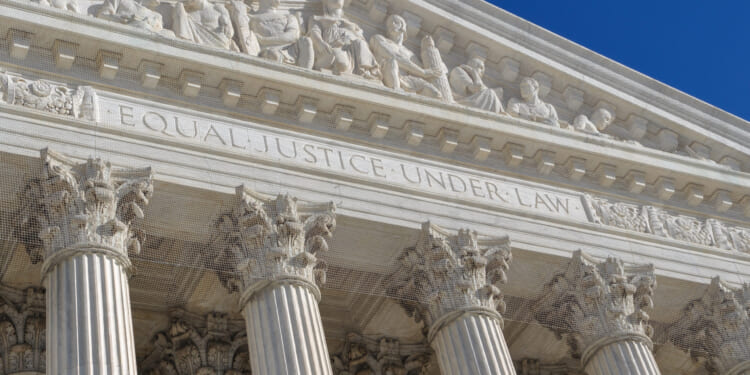Shawn Fleetwood of the Federalist explores an important case at the nation’s highest court.
Is the use of race in the redistricting process unconstitutional?
That’s a key question the U.S. Supreme Court will be considering in a pair of high-profile cases set to be argued before the justices on Wednesday. Known as Louisiana v. Callais and Robinson v. Callais, the matters provide the court with the opportunity to end longstanding conflicts between the Constitution and race-centric voting provisions that have plagued states and the redistricting process for decades.
We believe these cases are “good vehicle[s] for the Supreme Court to address some of these issues that have been percolating for a very long time,” Louisiana Attorney General Liz Murrill told The Federalist.
As The Federalist previously reported, the origins of the dispute date back to spring 2022, when the Louisiana Legislature drafted a congressional map with a single black-majority district. This prompted a group of plaintiffs — represented by left-wing groups like the ACLU — to sue, alleging that the map “dilut[ed] black voting strength” and therefore violated Section 2 of the 1965 Voting Rights Act.
Following an injunction barring the map’s implementation by a district court judge, continued litigation in the case ultimately resulted in the state redrawing the map to include a second black-majority district. This led to another lawsuit from a different group of plaintiffs, who claimed the state unlawfully prioritized race in the map’s creation and therefore violated the 14th Amendment’s equal protection clause. A three-judge panel on a separate district court agreed with these plaintiffs and blocked the new map’s implementation.
While the Supreme Court agreed to take up the case and was expected to issue a verdict during its 2024-2025 term, the justices announced on the final day of the session that it would be rehearing arguments in the case this fall. The court notably issued an order in early August instructing parties in the case to address the question of “[w]hether the State’s intentional creation of a second majority-minority congressional district violates the Fourteenth or Fifteenth Amendments to the U. S. Constitution.”











